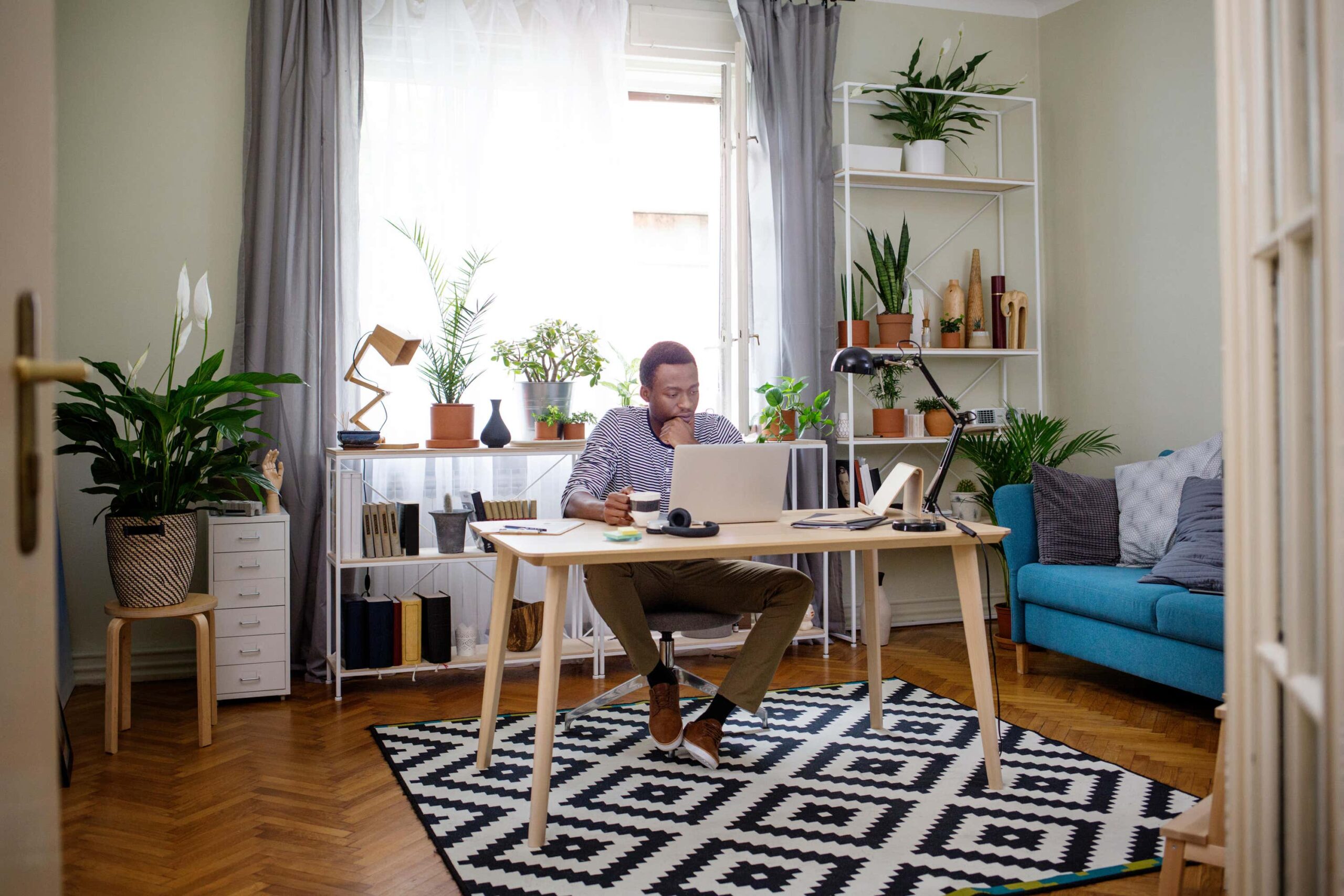In news that feels slightly like Groundhog Day, the work-from-home guidance is coming back into place.
From December 13, we’re advised to work from home where possible, as England moves into Plan B restrictions to tackle the spread of the Omicron variant.
If you’re the kind of person who has relished the slow return to the office – being able to actually see people face-to-face and do your work in a communal environment – the news might come as a blow.

Particularly during this time of year, when the weather is dark and miserable, it can be hard to motivate yourself to even leave the house after your working day has finished.
This could have an impact on your mental and physical health – but returning to home working doesn’t have to be all bad.
If you’re nervous about the new plans coming into place, there are plenty of things you can do throughout the day to boost your wellbeing and keep your focus on track.
1. Compliment yourself – and others
This might sound a bit silly but it’s a real oxytocin booster. Health and habits life coach Rochelle Knowles, founder of Mindful Eyes coaching, recommends listing “all the things you love about your body” out loud every morning before work, as “this should give you a warm, cosy feeling”.
She continues: “Even if it’s over Zoom, appreciate others. Take it a step further and acknowledge those around you, and let them know how thankful you are. Not only will it make them smile, but it will also give you an energy boost too.”
2. Take some time out of the day to meditate

It can be tough to carve time out of your busy working day, but even just a few minutes of slowing down could recharge your batteries.
Knowles recommends meditation, saying: “This can quite simply be sitting in silence, lightly placing your attention on inhaling and exhaling – and you can do this for as long or as short as you want.
The purpose is to give yourself a moment of quiet, with no distractions from the external world and give yourself the calm you deserve. Meditation connects you to your essential self, rediscovering there is silence already within you.”
3. Get moving
As much as you might not want to brave the great outdoors – or bother lacing up your trainers to do a workout in your kitchen – doing a bit of exercise is the best way to boost your mood and get some endorphins flowing.
If you struggle with motivation, Knowles recommends finding a form of movement “that actually excites you”.
She suggests trying something new and interesting – such as hula-hooping or rollerblading – alongside more conventional workouts. “It doesn’t matter what it is, just find something you enjoy and make it a part of your WFH routine,” she says.
Dr Sam Mather, author of RISE: The Science And Practice Of Creating And Developing Your Cognitive Resources For Resilience And Wellbeing, agrees with this, saying: “Exercise is important, as this has been shown to repair and improve the function of the brain’s neurons. At least take a walk every day.”
4. Feed your brain

You’d be amazed at how big of an impact paying attention to your diet can have on your day. “Feed your brain,” says Mather.
“It needs a balanced diet (that includes carbohydrates: the good ones), plenty of water and eight hours sleep.”
Taking the time to make a healthy, balanced meal for lunch will give you a chance to refocus your brain – and your body will thank you.
5. Mark the transition between work and home
“Working from home means we have lost the event horizon that we would usually cross moving from home to work – everything is happening in one location,” explains Mather.
To prevent burnout – and resist the urge of working too much – you need to clearly mark the end of the working day.
“Develop a habit that becomes a signal to the brain that you are transitioning from work to home: it could be that walk, a trip to the gym, spending an hour in the greenhouse, meditation,” she says. “Choose an activity that will allow your brain to begin to relax. And then don’t go back to work.
“If you can, have your office in a room where you can close a door at the end of the day, again signalling the day is over. If you can’t do that, make sure you never work in your bedroom.
This can be confusing for the brain. Find somewhere that is not associated with sleep or relaxation.”





